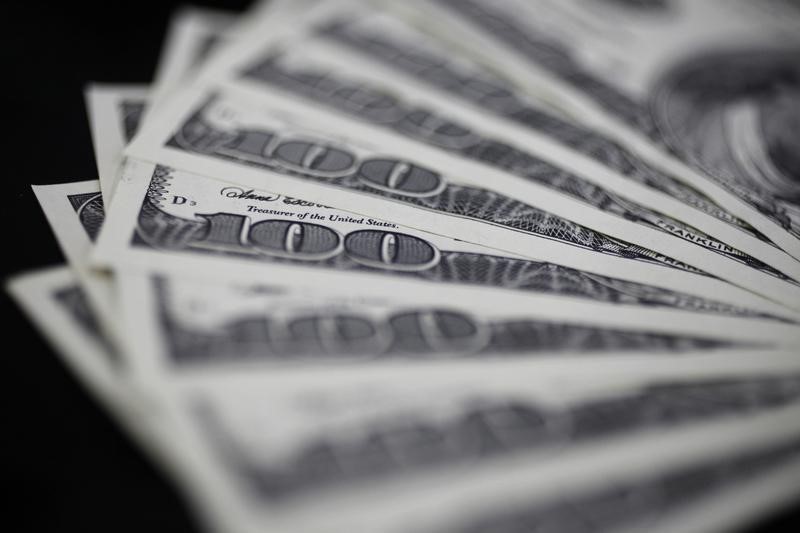 © Reuters.
© Reuters.
By Peter Nurse
Investing.com - The U.S. dollar rose in early European trade Wednesday with risk sentiment on the wane as central banks tighten monetary policy, likely weighing on global economic growth.
At 3:05 AM ET (0705 GMT), the Dollar Index, which tracks the greenback against a basket of six other currencies, traded 0.2% higher at 102.562.
Central banks around the globe have started to respond to soaring inflation by tightening monetary policy, which had been very loose in the wake of the COVID-19 pandemic.
Earlier Wednesday, India’s central bank raised the key interest rate for a second straight month by 50 basis points to 4.90%, which follows on from a similar move by the Reserve Bank of Australia on Tuesday.
The U.S. Federal Reserve is expected to raise its benchmark funds rate by 50 basis points next week and again in July, while the European Central Bank meets on Thursday and is expected to lay the groundwork for an interest rate rise next month.
This has had an impact on the global economic outlook, with the World Bank reducing its estimate for global growth this year to 2.9% from a January prediction of 4.1%, citing soaring commodity prices, supply disruptions, and moves by central banks to hike interest rates.
The obvious exception is the Bank of Japan which has given no indication of giving up ultra-easy monetary policies, with BOJ Governor Haruhiko Kuroda recently reiterating firmly that no tightening plans are under discussion.
As a result, USD/JPY rose 0.5% to 133.24, climbing to a fresh 20-year high, while the yen also slipped to a seven-year low against the euro.
“Markets are seriously testing Japanese authorities’ determination to act in support of the currency, and mere verbal intervention may not prove enough this time,” said analysts at ING, in a note.
Elsewhere, EUR/USD fell 0.1% to 1.0687 after German industrial production rose just 0.7% in April, below the 1.0% growth expected. This adds further evidence, after data released on Tuesday showed factory orders fell 2.7% in the same month, to the notion that the Eurozone’s largest economy could suffer a quarter of economic contraction.
GBP/USD fell 0.1% to 1.2571 after a period of volatile trading amid political turmoil after U.K. Prime Minister Boris Johnson survived a vote of no confidence.
“We think markets are overpricing the impact of recent political noise on the U.K. economy and we expect volatility in the pound to decrease over the coming days, with the focus potentially shifting back to other drivers such as the Bank of England's policy or a slowing economic outlook,” added ING.
The risk-sensitive AUD/USD fell 0.4% to 0.7199 in the wake of Tuesday’s hike by the Reserve Bank of Australia, NZD/USD fell 0.5% to 0.6456, while USD/CNY inched up to 6.6726.

